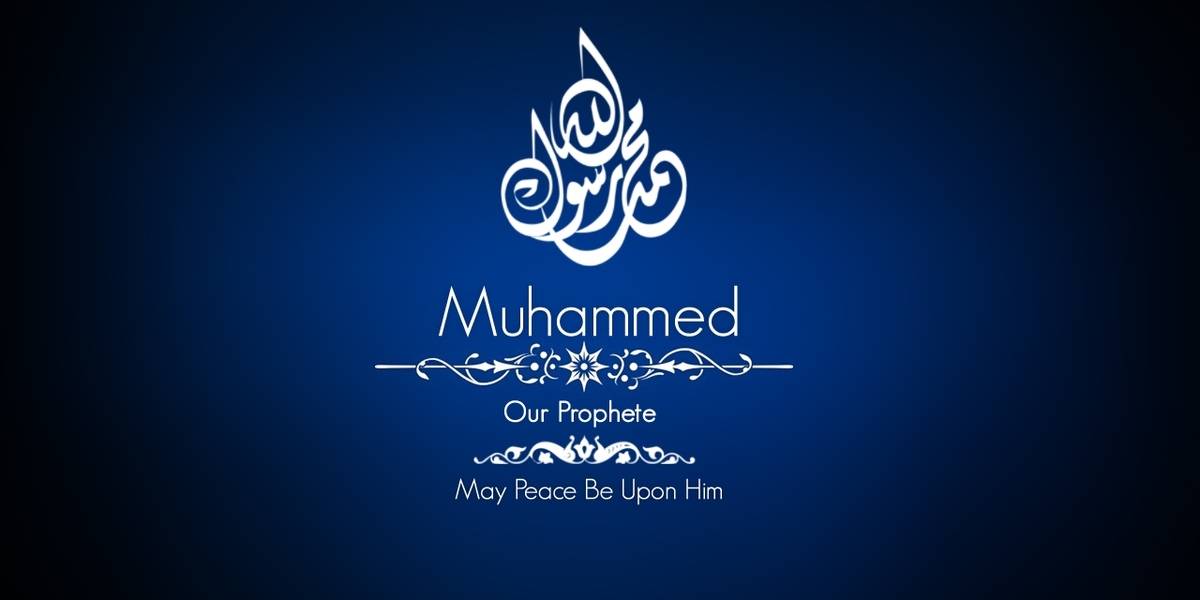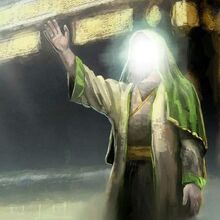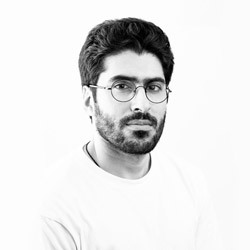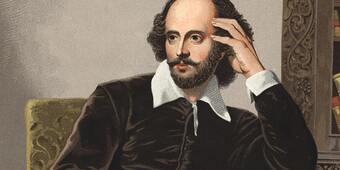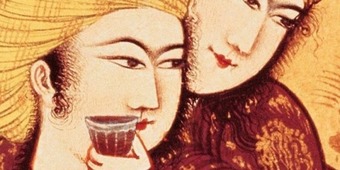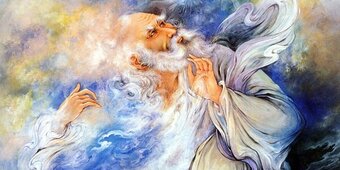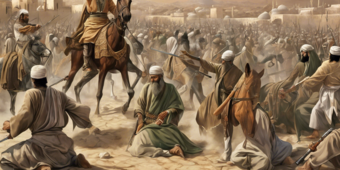Muhammad prophet of Islam
Muhammad (c. 570 – 8 June 632 CE) was an Arab religious, social, and political leader and the founder of Islam .According to Islamic doctrine, he was a prophet divinely inspired to preach and confirm the monotheistic teachings of Adam, Abraham, Moses, Jesus, and other prophets. He is believed to be the Seal of the Prophets within Islam, with the Quran as well as his teachings and practices forming the basis for Islamic religious belief.
Muhammad was born in approximately 570 CE in Mecca. He was the son of Abdullah ibn Abd al-Muttalib and Amina bint Wahb. His father, Abdullah, the son of Quraysh tribal leader Abd al-Muttalib ibn Hashim, died around the time Muhammad was born. His mother Amina died when he was six, leaving Muhammad an orphan.He was raised under the care of his grandfather, Abd al-Muttalib, and paternal uncle, Abu Talib. In later years, he would periodically seclude himself in a mountain cave named Hira for several nights of prayer. When he was 40, circa 610 CE, Muhammad reported being visited by Gabriel in the cave and receiving his first revelation from God. In 613, Muhammad started preaching these revelations publicly, proclaiming that "God is One", that complete "submission" (islām) to God (Allah) is the right way of life (dīn),and that he was a prophet and messenger of God, similar to the other prophets in Islam.
Muhammad's followers were initially few in number, and experienced hostility from Meccan polytheists for 13 years. To escape ongoing persecution, he sent some of his followers to Abyssinia in 615, before he and his followers migrated from Mecca to Medina (then known as Yathrib) later in 622. This event, the Hijrah, marks the beginning of the Islamic calendar, also known as the Hijri calendar. In Medina, Muhammad united the tribes under the Constitution of Medina. In December 629, after eight years of intermittent fighting with Meccan tribes, Muhammad gathered an army of 10,000 Muslim converts and marched on the city of Mecca. The conquest went largely uncontested, and Muhammad seized the city with little bloodshed. In 632, a few months after returning from the Farewell Pilgrimage, he fell ill and died. By the time of his death, most of the Arabian Peninsula had converted to Islam.
The revelations (ayat) that Muhammad reported receiving until his death form the verses of the Quran, regarded by Muslims as the verbatim "Word of God" on which the religion is based. Besides the Quran, Muhammad's teachings and practices (sunnah), found in transmitted reports (hadith) and in his biography (sīrah), are also upheld and used as sources of Islamic law.
Quran of Muhammad and Islam
The Quran is the central religious text of Islam. Muslims believe it represents the words of God revealed by the archangel Gabriel to Muhammad.The Quran is mainly addressed to a single "Messenger of God" who is referred to as Muhammad in a number of verses. The Quranic text also describes the settlement of his followers in Yathrib after their expulsion by the Quraysh, and briefly mentions military encounters such as the Muslim victory at Badr.
The Quran, however, provides minimal assistance for Muhammad's chronological biography; most Quranic verses do not provide significant historical context and timeline. Almost none of Muhammad's companions are mentioned by name in the Quran, hence not providing sufficient information for a concise biography.The Quran is considered to be contemporary with Muhammad, and the Birmingham manuscript has been radiocarbon dated to his lifetime, its discovery largely disproving Western revisionist theories about the Quran's origins.
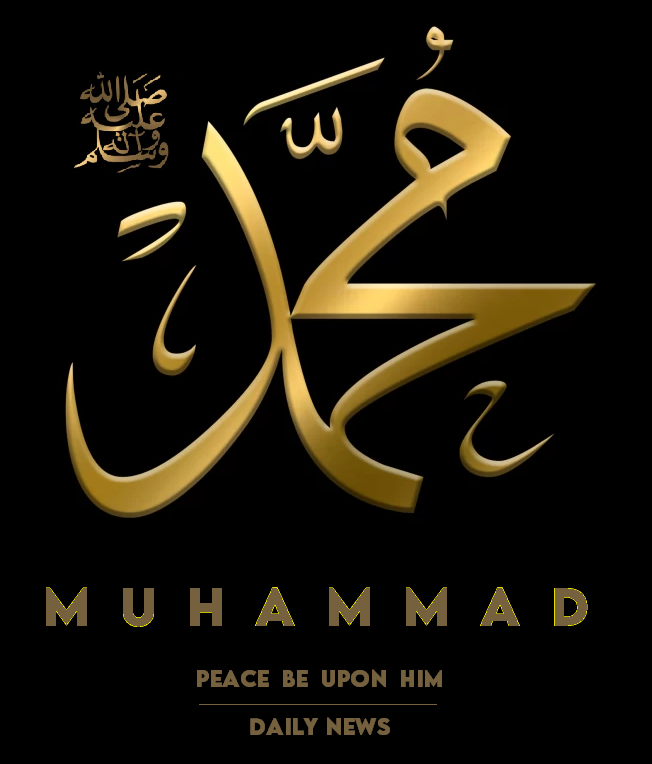
Early biographies of Muhammad
Important sources regarding Muhammad's life may be found in the historic works by writers of the 2nd and 3rd centuries of the Hijri era (around the 8th and 9th century CE respectively). These include traditional Muslim biographies of Muhammad, which provide additional information about his life.
The earliest written sira (biographies of Muhammad and quotes attributed to him) is Ibn Ishaq's Life of God's Messenger written c. 767 CE (150 AH). Although the original work was lost, this sira survives as extensive excerpts in works by Ibn Hisham and to a lesser extent by Al-Tabari.However, Ibn Hisham wrote in the preface to his biography of Muhammad that he omitted matters from Ibn Ishaq's biography that "would distress certain people". Another early historical source is the history of Muhammad's campaigns by al-Waqidi (d. 207 AH), and the work of Waqidi's secretary Ibn Sa'd al-Baghdadi (d. 230 AH).
Many scholars accept these early biographies as authentic, though their accuracy is unascertainable. Recent studies have led scholars to distinguish between traditions touching legal matters and purely historical events. In the legal group, traditions could have been subject to invention while historic events, aside from exceptional cases, may have been subject only to "tendential shaping".
Early life of Muhammad Rasool Allah
Muhammad ibn Abdullah ibn Abd al-Muttalib ibn Hashim was born in Mecca about the year 570, and his birthday is believed to be in the month of Rabi' al-Awwal. He belonged to the Banu Hashim clan of the Quraysh tribe, which was a dominant force in western Arabia. While his clan was one of the more distinguished in the tribe, it seems to have experienced a lack of prosperity during his early years. According to Muslim tradition, Muhammad was a hanif, someone who professed monotheism in pre-Islamic Arabia. He is also claimed to have been a descendant of Ishmael, son of Abraham.
The name Muhammad means "praiseworthy" in Arabic and it appears four times in the Quran.He was also known as al-Amin (lit. 'faithful') when he was young; however, historians differ as to whether it was given by people as a reflection of his nature or was simply a given name from his parents, i.e., a masculine form of his mother's name "Amina". Muhammad acquired the kunya of Abu al-Qasim later in his life after the birth of his son Qasim, who died two years afterwards.
Islamic tradition states that Muhammad's birth year coincided with Yemeni King Abraha's unsuccessful attempt to conquer Mecca. Recent studies, however, challenge this notion, as other evidence suggests that the expedition, if it had occurred, would have transpired substantially before Muhammad's birth.Later Muslim scholars presumably linked Abraha's renowned name to the narrative of Muhammad's birth to elucidate the unclear passage about "the men of elephants" in Quran 105:1–5.The Oxford Handbook of Late Antiquity deems the tale of Abraha's war elephant expedition as a myth.
Muhammad's father, Abdullah, died almost six months before he was born.Muhammad then stayed with his foster-mother, Halimah bint Abi Dhuayb, and her husband until he was two years old. At the age of six, Muhammad lost his biological mother Amina to illness and became an orphan. For the next two years, until he was eight years old, Muhammad was under the guardianship of his paternal grandfather, Abd al-Muttalib, until the latter's death. He then came under the care of his uncle, Abu Talib, the new leader of the Banu Hashim.
The historical record of Mecca during Muhammad's early life is limited and fragmentary, making it difficult to distinguish between fact and legend.Several Islamic narratives relate that Muhammad, as a child, went on a trading trip to Syria with his uncle Abu Talib and met a monk named Bahira, who is said to have then foretold his prophethood.There are multiple versions of the story with details that contradict each other. All accounts of Bahira and his meeting with Muhammad have been considered fictitious by modern historians as well as by some medieval Muslim scholars such as al-Dhahabi.
Sometime later in his life, Muhammad proposed marriage to his cousin and first love, Fakhita bint Abi Talib. But likely owing to his poverty, his proposal was rejected by her father, Abu Talib, who chose a more illustrious suitor. Life took a favorable turn for Muhammad at the age of 25 when he was asked for marriage by Khadija, a wealthy 40-year-old businesswoman. He accepted her offer and remained monogamous with her until her death.
In 605, the Quraysh decided to roof the Kaaba, which had previously consisted only of walls. A complete rebuild was needed to accommodate the new weight. Amid concerns about upsetting the deities, a man stepped forth with a pickaxe and exclaimed, "O goddess! Fear not! Our intentions are only for the best." With that, he began demolishing it. The anxious Meccans awaited divine retribution overnight, but his unharmed continuation the next day was seen as a sign of heavenly approval. According to a narrative collected by Ibn Ishaq, when it was time to reattach the Black Stone, a dispute arose over which clan should have the privilege. It was determined that the first person to step into the Kaaba's court would arbitrate. Muhammad took on this role, asking for a cloak. He placed the stone on it, guiding clan representatives to jointly elevate it to its position. He then personally secured it within the wall.
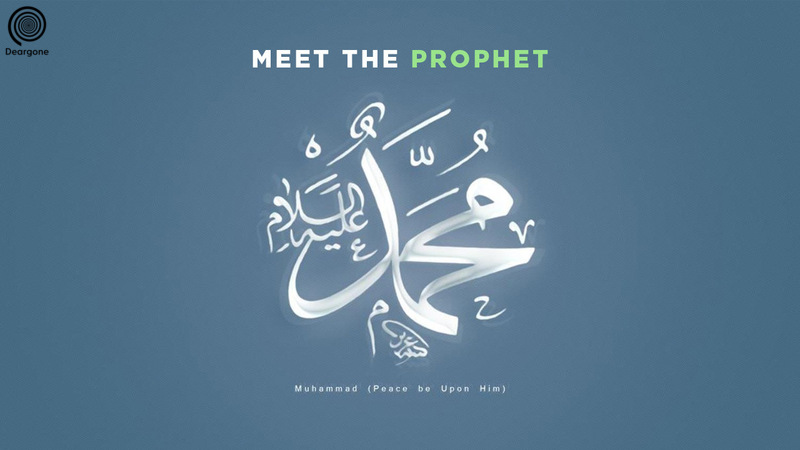
Death of Muhammad Rasool Allah
After praying at the burial site in June 632, Muhammad suffered a dreadful headache that made him cry in pain.He continued to spend the night with each of his wives one by one,but he fainted in Maymunah's hut.He requested his wives to allow him to stay in Aisha's hut. He could not walk there without leaning on Ali and Fadl ibn Abbas, as his legs were trembling. His wives and his uncle al-Abbas fed him an Abyssinian remedy when he was unconscious.[321] When he came to, he inquired about it, and they explained they were afraid he had pleurisy. He replied that God would not afflict him with such a vile disease, and ordered all the women to also take the remedy.According to various sources, including Sahih al-Bukhari, Muhammad said that he felt his aorta being severed because of the food he ate at Khaybar. On 8 June 632, Muhammad died. In his last moments, he reportedly uttered:
O God, forgive me and have mercy on me; and let me join the highest companions.
Historian Alfred T. Welch speculates that Muhammad's death was caused by Medinan fever, which was aggravated by physical and mental fatigue.
you can see this article: How many children did Muhammad the prophet of Islam have?
And this article: Wives of Muhammad prophet of Islam
